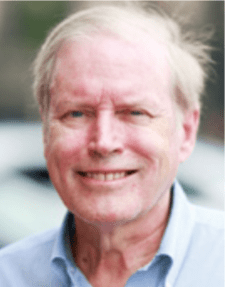Campaign 2019
From the Editor / L. Ian MacDonald
Welcome to our special pre-election issue, Campaign 2019. This full issue on the campaign sets the stage for the October 21 election. It’s all here—the polling, the policies and the players—at the national level and across the country.
Our cover package includes looks at the four main parties and their leaders by seasoned strategists. Then we consider the main issues, from climate change and carbon taxes, to pipelines. We look at Canadian policy keystones, from fiscal frameworks and health care to foreign policy. Progress on women’s issues is also on the campaign agenda.
Lori Turnbull of Dalhousie University takes us through a key set of numbers, specifically the 170 seats needed to form a majority government in the 338-seat House. There are many ways to get there, but if they fall short, that’s another story called minority government.
Which brings us to the four main parties, their leaders, and what they need to do in the campaign. For Justin Trudeau, this is not looking like a campaign of “sunny ways” but one in which he will be tested on his record.
For John Delacourt, former director of communications of the Liberal Research Bureau, this is a test whose outcome should not be taken for granted. For Conservative strategist Yaroslav Baran, the campaign offers an opportunity to showcase the Scheer strength, in a manner of speaking, of the Tory leader. While Trudeau is winning the charisma contest, Scheer could strike a role as the soccer dad.
Former federal NDP president Brian Topp writes that there is no point in the New Democrats simply running to get rid of Trudeau since “The short road to doing this is to elect a Conservative government.” For Elizabeth May and the Greens, the 2019 election represents a moment. As Ziya Tong writes, the question is how May will weather the scrutiny.
In the modern era, democracies are aware of threats to their elections, of which the 2016 U.S. election cycle was the most obvious example. Democratic Institutions Minister Karina Gould writes of Canada’s protective and pre-emptive response. The other question is whether populism is growing in Canada. Patrick Gossage, former press advisor to Pierre Trudeau, wonders Could it Happen Here?
One of the mega-issues in this campaign is bound to be climate change and carbon taxes, which Don Newman explores in The ‘Big E’ Election—Energy and the Environment.
After a 2015 campaign in which fiscal policy played a surprising role, former Parliamentary Budget Officer Kevin Page examines the Trudeau government’s record and asks Is Fiscal Responsibility an Issue in the 2019 Campaign?
With gender parity having been a major theme of the Trudeau government’s first term, Helaina Gaspard and Emily Woolen of the Institute of Fiscal Studies and Democracy look at Canada’s gender-based analysis in Because it’s 2019.
Foreign Affairs is a seldom a talking point in Canadian campaigns, though it’s never far from voters’ minds. Our foreign affairs hand, Jeremy Kinsman, sizes up foreign policy in this campaign.
Health care is back as a ballot question. “For the first time in a long time,” writes Shachi Kurl of the Angus Reid Institute, “party leaders find themselves compelled to say something about our physical well being.”
In a guest column, Diabetes Canada President Jan Hux asks whether the importing of insulin by the U.S. “raises concerns of potential drug shortages on this side of the border.” She calls it Canada’s “own diabetes crisis.”
Most campaigns have defining moments and in the modern Canadian political era, none more so than the 1984 leaders’ debate, which changed the rules and rewards of the game. Peter Mansbridge captures the drama of the exchange between John Turner and Brian Mulroney. Taken to task for a series of deathbed Liberal patronage appointments, Turner said lamely: “I had no option.” To which Mulroney famously replied: “You had an option, sir, you could have done better.” History was made at that moment. Thirty-five years on, they still talk about it.
And, in his regular column. Don Newman provides a prescription for mitigating chaos in the event of a minority House.
Finally, we offer timely reviews of two important books of this season. Former Maclean’s Editor-in-Chief Bob Lewis looks at Trudeau: The Education of a Prime Minister and finds that John Ivison’s biography “fairly bristles with anecdotes and examples of a flawed prime ministry.” And, Robin Sears is struck by the personal courage of NDP Leader Jagmeet Singh in his autobiography, Love & Courage.
In our November-December edition, we’ll have our election wrap-up and analysis of where Canada goes from here. See you then, and remember
to vote.

